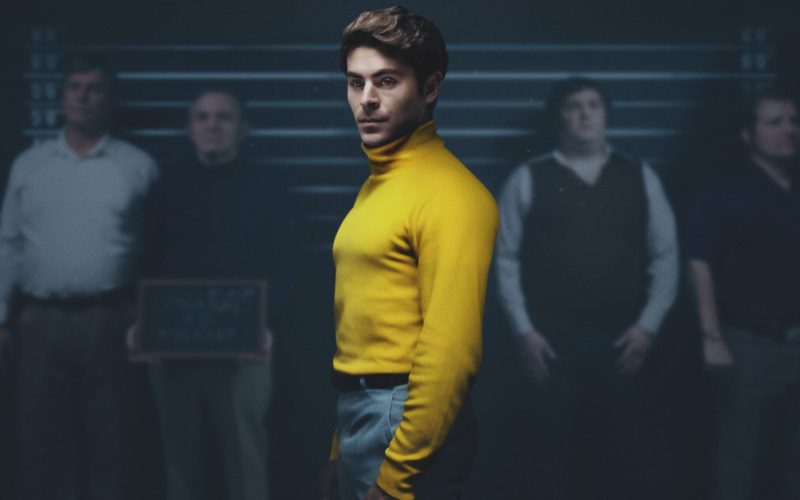Extremely Wicked, Shockingly Evil and Vile (2019).
Extremely Wicked, Shockingly Evil and Vile tells the true-life story of Ted Bundy who murdered at least thirty women in the most horrific of ways. The film focuses specifically on his arrest, escapes and trial, along with his relationships with Liz Kendall (whose real name is probably Kloepfer) and later with Carole Anne Boone, who remained his girlfriend until his execution. The film is written and directed by Joe Berlinger, who has some renown as a documentarian, and whose only other work of dramatic filmmaking is the extremely rubbish, shocking incompetent and terrible Book of Shadows – Blair Witch 2, which this reviewer will try and put out his mind for the sake of impartiality.
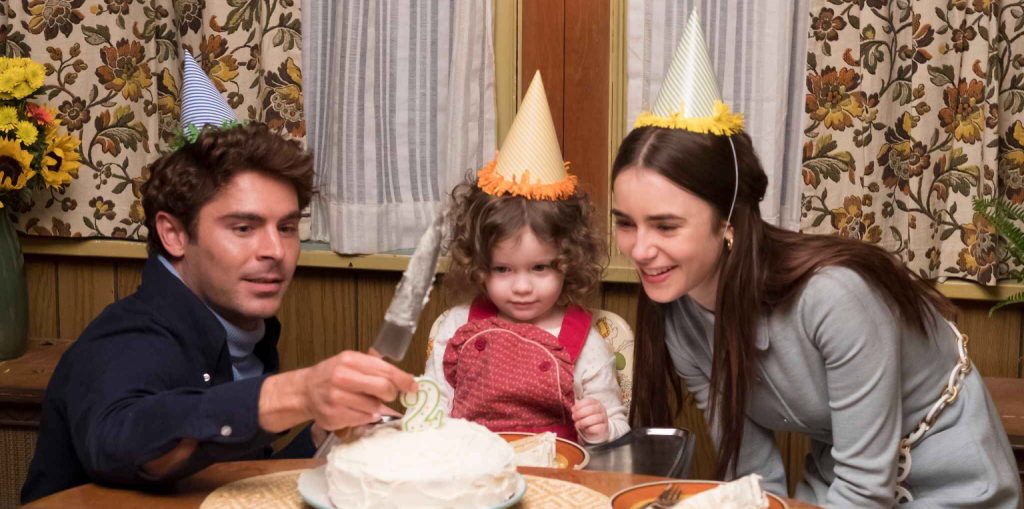
The film is based on The Shadow Prince, by Elizabeth Kendall, who shared her home with Bundy, along with her daughter from a previous relationship. The limit that this places on the scope of the film is problematic. We are given no hint throughout the course of the film as to what may have caused Bundy to reach such an intense level of psychopathy. This is understandable as any attempt to convey such a complex personality, both affable and yet capable of the most appalling acts, would have fallen short. Nonetheless, hints at the darker reaches of his personality would have made this a more psychologically compelling re-hashing of well-documented events. All we get to see here is the charming veneer. Less forgivable is the decision that Berlinger has made to not show any depiction of the crimes, the horror of the victims, or even the aftermath of events until very near the end of the film, and then comparatively little detail is given. This makes it impossible to view Bundy in the appropriate moral context throughout the course of the film.
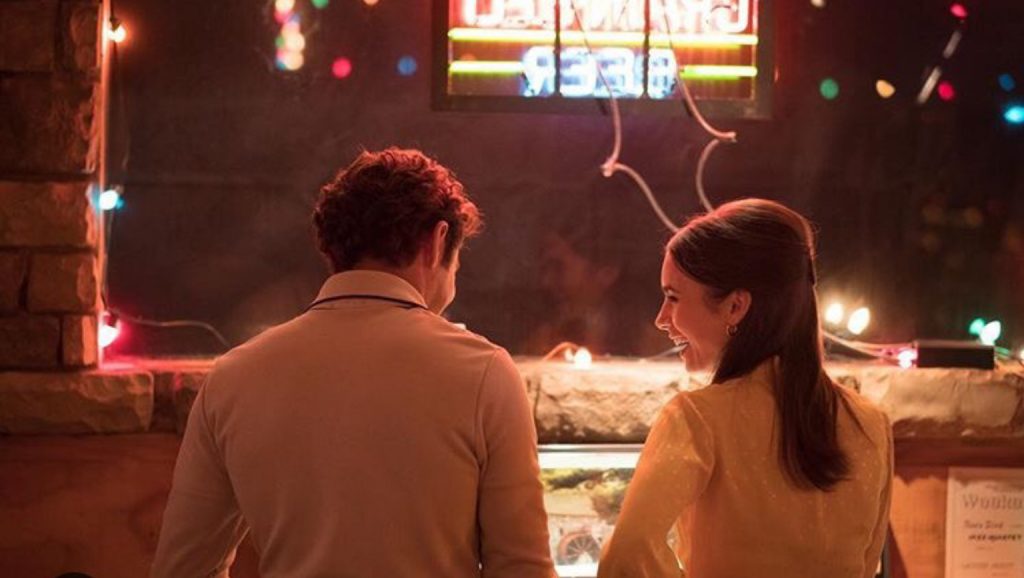
Both of these choices have surely been made by Berlinger to allow audiences to view Bundy in much the same light as his girlfriends, Liz Kendall and Carole Anne Boone, and it would seem, any number of fawning young women who found Bundy to be a glamourous, sexually alluring figure during his trial. There is no sense of commentary about this, we are simply invited to thrill at the exploits of Bundy, who talks circles around lawmen and lawyers, makes daring escapes and seemingly earns the respect of the trial judge. The effect is somewhat like watching Spielberg’s Catch Me if You Can, or the excellent, underseen Jim Carrey vehicle, I Love You Phillip Morris, only here the daring rogue is a serial killer who rapes and murders women, and then gains physical pleasure from their corpses. Not that Berlinger bothers to tell us much about that.
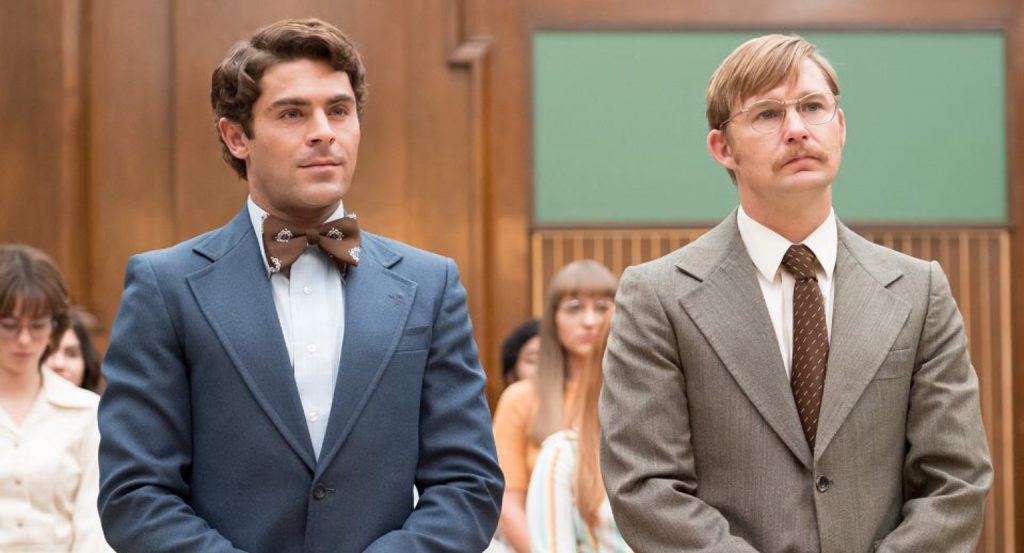
In fact, the film’s cheapest dramatic device is to allow audiences to believe that Bundy could be innocent – to allow his charm to work on us. This is carried almost to the end of the movie, when we are finally shown a crime scene photograph, presented to him by Liz Kendall, who has at last come to terms with Bundy’s guilt. Dubiously, the photograph is delivered like a grisly treat that the audience has been left to wait for. It’s as if Berlinger has played a trick on his audience. He’s invited us to enjoy Bundy, with all his cleverness and charisma, and then slapped us with a little sliver of the truth. Putting aside the morality of such decisions, the structure doesn’t work because almost everyone seeing the film will know that Bundy is guilty.
It is worth saying that the story is interesting in and of itself, and the film is competently made, but no more than that.
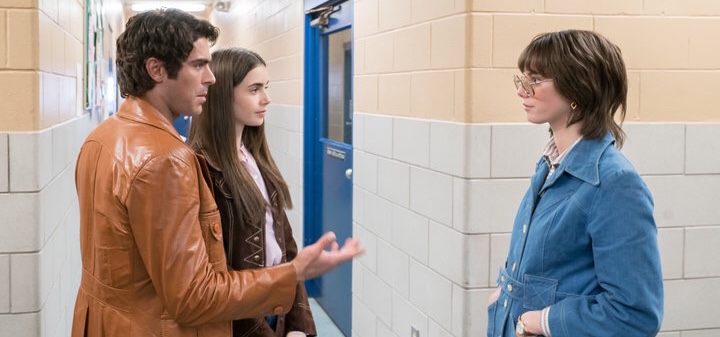
The film’s saving grace is the cast. Zac Efron, who bares more than a passing resemblance to Bundy, manages to convey all of the charm and rationality that made the killer such a compelling figure, and enabled him to deceive those closest to him, if indeed they really were deceived at all. Subtly, he also manages to hint at a level of self-delusion that may have allowed Bundy to appear normal. Lily Collins delivers a powerful performance as Liz Kendall, Bundy’s initial romantic partner, although the part is underwritten, and lacks the necessary detail to convince us that she would stick by Bundy for as long as she does. All we are told about her is that she has a daughter and doesn’t believe that any man would want her. It’s not enough. Kaya Scodelario is given more to work with as Carole Anne Boone, who remains Bundy’s girlfriend until the end. She is appropriately obsessive and convinces as a kind of death row groupie. It’s also nice to see Haley Joel Osment acquit himself nicely in a supporting role as Kendall’s safe new boyfriend. Striking a bum note unfortunately is John Malkovich as Judge Cowart who develops a rapport with Bundy during his trial. As one can see from the real-life footage of the trial played over the closing credits, Judge Cowart was a plump, good ol’ boy type, with a friendly down-home charm, who referred to Bundy as “Pardner”. For whatever reason, laziness perhaps, Malkovich doesn’t bother to affect the necessary accent or manner that would make his lines feel remotely credible. It’s as if we’re listening to Malkovich read the lines of another man without bothering to do any actual acting. An uncharacteristically feeble effort.
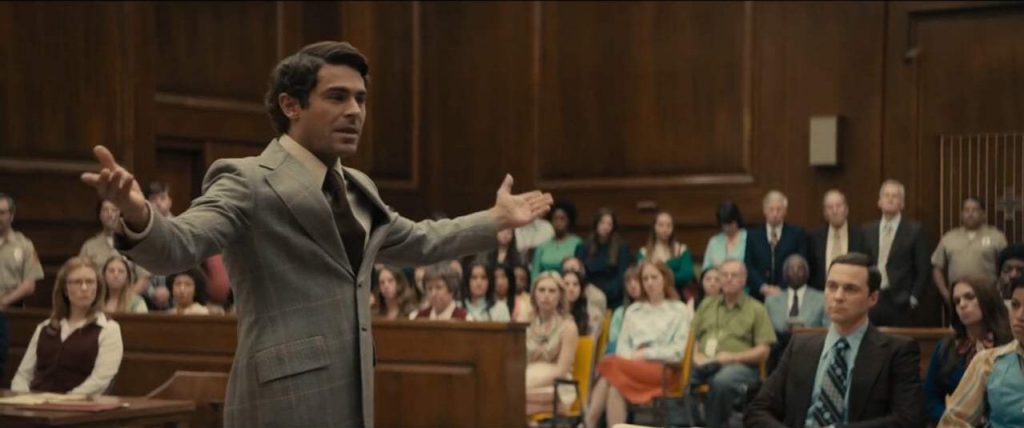
Extremely Wicked, Shockingly Evil and Vile is a perfectly competent, but ultimately unsatisfying drama that will leave one wondering over what they’ve just enjoyed. However, the performances just about make up for it giving it at least some degree of merit.
Film ‘89 Verdict – 5/10
Extremely Wicked, Shockingly Evil and Vile is available in the US both on theatrical release as well as Netflix and is on limited theatrical release in the U.K. and is also available to subscribers of Sky Cinema.

